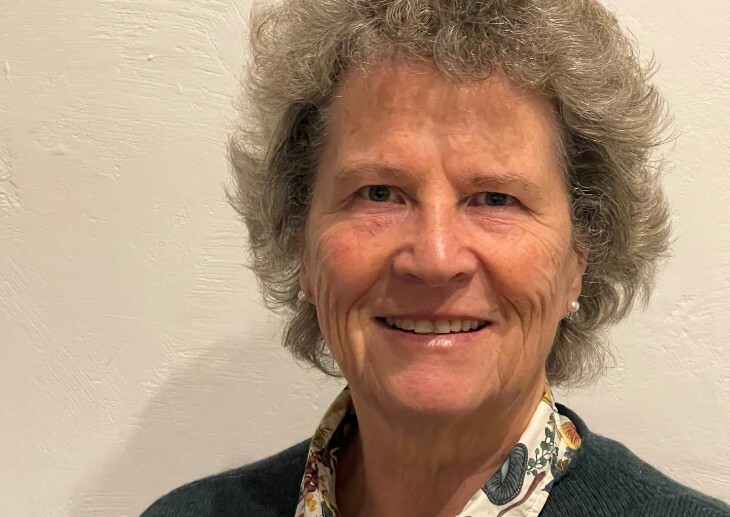With the release of both the 10 Year Plan and the Patient Safety Review within days of each other, I – like everyone else in healthcare – have been absorbed in understanding what they mean, for providers and patients alike. While my initial response is one of cautious optimism, my overriding thought is that we must be guided by data. Or, as NHS England Chair Dr Penny Dash, author of the Patient Safety Review, said in The Sunday Times, prior to its release ‘we collect more data on quality of care than any other country….let’s use it’.
The importance of data is stressed throughout both these documents. In fact, there are some really interesting ideas in the ‘10 Year Plan’ in particular, not least of which is a focus on evidence-based quality and prevention. A strategy that is designed to keep people healthy, and reduce the chances of them needing admission to hospital, is really important. However, we now need more detail about delivery. The Plan is a blueprint, not a roadmap. What is clear to me though, is that the data we already have must be our starting point.
I can envisage getting to a position where we have neighbourhood-level electronic health records, from which data feeds seamlessly into national clinical audits and similar programmes. It is then analysed, and interpreted with appropriate specialist input, and sent back to the neighbourhood system to inform the care delivered. Under such a system, patients will be able to see and understand – in collaboration with clinicians – what will deliver the best outcome for them.
Indeed, it’s obvious from the recent strategies that outcome measures are going to be of utmost importance going forward (not that they weren’t already, but I’m seeing a renewed focus in the 10 Year Plan). This is a key area where we need to look to what we already have. The national clinical audit programme (or NCAPOP*) generates data spanning decades on a wide range of conditions from asthma to vascular care, supporting improved care and outcomes. One of many examples of this is the National Emergency Laparotomy Audit (NELA), whose data led to a significant reduction in mortality within a few years for patients having major abdominal surgery. Managed by HQIP on behalf of the NHS, this programme is evidence-based, clinically validated, and supports quality improvement through data-informed, actionable recommendations. Importantly, the data is also publicly available. Which brings me to two other important themes where I agree with the Plan; transparency and patient engagement.
In my eight years as a Trust CMO, I worked hard to ensure that patients were well-informed. I am a strong advocate of shared decision-making. These days, you can obtain information about some conditions, treatment options and even your clinician – but it’s not widespread. The National Joint Registry (NJR) is a great example where this data is available. We need to make it possible for patients to obtain this level of information about other specialties too – and this came across loud and clear in the 10 Year Plan. However, I would caution that we need to ensure that this data is available to everyone. The mooted neighbourhood and data systems need to pay particular attention to underserved communities, if we are to address healthcare inequities, something which is a major issue in the UK at the moment. Here again, we don’t need to start from scratch. For example, PICANet data recently showed that children from ethnic minority backgrounds and those living in areas with higher levels of poverty are more likely to die in intensive care. Audits from the national clinical audit programme have long-since shone a light on issues like this. Previously, for example, exposing the fact that black women were five times more likely to die in pregnancy or childbirth than white women (MBRRACE). This enabled care providers to focus on addressing that shocking statistic, and now we are starting to see that number reduce.
While I strongly advocate that clinicians engage with the data available to achieve change, they cannot do it alone. Policy makers need to streamline processes so that data can flow directly from the clinical record into a national system, whereby it can be analysed and produce results that are of value at both local and national levels. The “revamped, revitalised and reinforced” National Quality Board (NQB) has an opportunity to do just this. Its mooted leads, Professor Sir Mike Richards and Dr Penny Dash, are both experts in recognising the importance of data to drive quality improvement, but their challenge will be to work with organisations like HQIP to focus on the measures that will make a difference to patient outcomes. That means more real-time reporting, which we saw being accelerated during the COVID-19 pandemic (for example, with the National Child Mortality Database (NCMD), shared real-time data to inform paediatric care at that time). There are many other national audits that now follow this example, such as the National Cancer Audit Collaborating Centre (NATCAN), which shares quarterly data via an online dashboard.
Looking forward, this vision of a data-informed healthcare system should be supported by technologies such as AI. It could, for example, play an increasing role in data analysis which would, in turn, speed up sharing findings and recommendations. This is echoed in the 10 Year Plan. And, no less than the ‘Godfather of AI’, Geoffrey Hinton, agrees. At a public lecture at the University of Bristol on 2 June 2025, he was asked where he thought AI would deliver the greatest benefit. Without hesitation, he answered ‘healthcare’
*The National Clinical Audit and Patient Outcomes Programme (NCAPOP) is the largest programme of its kind in the UK; it is commissioned by HQIP on behalf of NHS England. It includes 44 national clinical audits and outcome review programmes, including the National Emergency Laparotomy Audit (NELA), PICANet, MBRRACE, the National Child Mortality Database (NCMD), and the National Cancer Audit Collaborating Centre (NATCAN)
By Dame Celia Ingham Clark, former NHS England deputy Medical Director and Chair of the Healthcare Quality Improvement Partnership (HQIP) and the Faculty of Medical Leadership and Management (FMLM)






